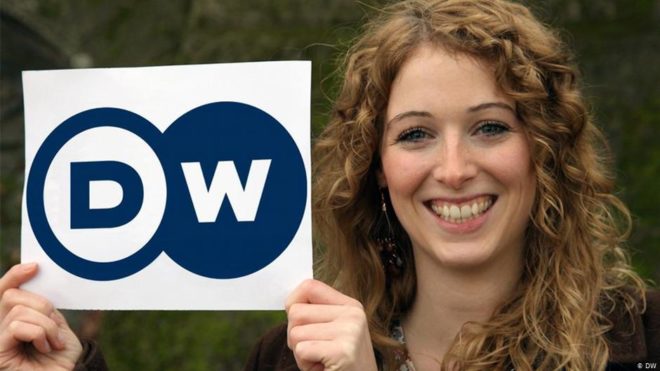Purchase of houses and flats
Purchase of houses and flats
This page is prepared for those people interested in the possibility of purchasing a property in the United Kingdom. It must be stressed that owning a property does not give rights of residence or any preference under the immigration rules but in the long term it has been found to be a reasonable investment.
Firstly, the type of property needs to be identified. Are you prepared to do work on it? This may involve re-plumbing and re-wiring or a complete refurbishment. Are you looking for a house or a flat? Is a garden important? How many bedrooms are required? Is a central location required? All of these criteria will effect the type of property you are going to purchase, it`s location and thereby the area in which you wish to search. Where properties are purchased for letting, it is sensible that they be located close to public transport routes as this increases their suitability for potential tenants.
Ownership
Property in the United Kingdom is either freehold where you own both the property and the land it stands on or leasehold. For residential property leaseholds usually apply to flats. This means that the landlord owns the ground on which the property stands and the owner pays “ground rent”. This is usually a nominal sum of between GBP50-200. This is not a market price but simply a reflection of the fact that the property is standing on someone else`s land. In more recent times the freehold (the ownership of the land) has often been transferred to management companies in which people with a lease have a share (often described in agent`s particulars as “share of freehold”). These management companies will manage the estate, maintain the common parts (staircases, lifts, gardens etc) and in older Victorian blocks will supply hot water and central heating from a central boiler. The management company charges a service charge for this which is variable. In many central London blocks the service charge can be up to GBP2,500 – 3000 per annum.
Making an Offer
Once the property has been identified, an offer can be made for it. Depending on the market this may be at then full market price, the asking price of an estate agent, or it may be at a lesser price. If the price is accepted in principal matters will then be referred to solicitors.
The Contract
The solicitor will receive the contract, usually in standard form, from the seller`s solicitors and once this is received various steps require to be undertaken. Searches need to be done with the local authority and other authorities if development is proposed. For example, if you wish to extend the house or do other work to it it`s sensible to get plans of where the drains are and also electricity cables. Searches are submitted to the Local Authority to ask questions as to whether the road is public, whether there are any major developments in the area, whether the property complies with all of the relevant planning and building regulations rules etc these searches will cost up to GBP200.
In addition, your solicitors will either request or be provided with information about the property from the seller. This refers to boundaries, whether it is connected to the main services, whether there have been any disputes and other similar matters. These replies are confirmed by a solicitor and can be relied on for the purposes of future action if false replies were given and loss is suffered as a result. There will also be a list of fixtures and fittings included with the property or in some instances agreement may be reached with the seller to buy things separately i.e. washing machine, furniture etc.
Structural survey
It is sensible for a structural survey or a homebuyers report (lesser survey) to be prepared. This will tell you whether there is anything obviously wrong with the property and what work needs to be done to get it into good condition. The price of such reports varies depending on the size of the property and for residential properties you are usually looking at a fee of between GBP600 – 1,500. This type of report is a requirement from any bank to ensure that the price being paid for the property is not excessive. It is however recommended for cash buyers as it gives some comfort that there are no major defects.
Exchange of Contracts
If everything in respect of the property is satisfactory, all searches and inquiries have come back (and in the case of a lease this will include confirmation that service charge and ground rent are paid up to date), your solicitor will then move forward to exchange of contracts. Upon exchange, the buyer usually pays 10% of the purchase price, occasionally lower figures (5%) can be agreed. The solicitors agree a time and date for exchange and the buyer`s solicitors will send the deposit money to the seller`s solicitor together with his signed copy of the contract and the seller`s solicitors will send his signed copy of the contract to the buyer`s solicitor. At this stage there is a legally binding contract in force.
On exchange of contracts a completion date will be included in the contract. The sale should complete on that date or there are various penalties not least of which is interest upon money outstanding and making the deposit up to 10% if less was paid. Upon exchange it is also usual for the buyer to insure the property unless there will be a long delay between exchange and completion when it is often agreed that the buyer will be noted as an interested party on the sellers insurance policy. The insurance of course relates to the structure of the building and not the contents.
Between exchange and completion
In this period, further enquiries will be sent out by the buyers solicitors together with a draft transfer document, it is this transfer document that provides evidence of the transfer of the property and it is this that is sent to the Land Registry for the ownership recorded therein to be changed. Completion occurs when the executed TR1 and other relevant documentation are sent by the sellers solicitor having received the completion monies by telegraphic transfer from the buyers solicitor. This is sent between solicitors client accounts. The Client Account is an account where client`s money is held. If there is a mortgage on the property, the seller`s solicitor will give an undertaking that the mortgage will be discharged. Once the mortgage is discharged the bank will issue a form DS1 as evidence of the discharge.
Registration of Transfer
All titles are registered at HM Land Registry. The stamp duty of between 1 – 4% needs to be paid on the TR1 to the Inland Revenue and the document is then stamped to show tax has been paid. It is this stamped document that is sent together with other supporting documentation to the Land Registry for registration. Between GBP60,000-250,000 1% stamp duty is payable, between GBP250,000 – 500,000 3% stamp duty is payable and over GBP500,000 4% stamp duty is payable. This is paid on the purchase price and not on the price of any contents purchased separately. There will be a further fee of between GBP60 – 500 for registration of the transfer at the Land Registry. Again this depends on the value of the property.
Should further information be required please email us and we would be happy to assist.







